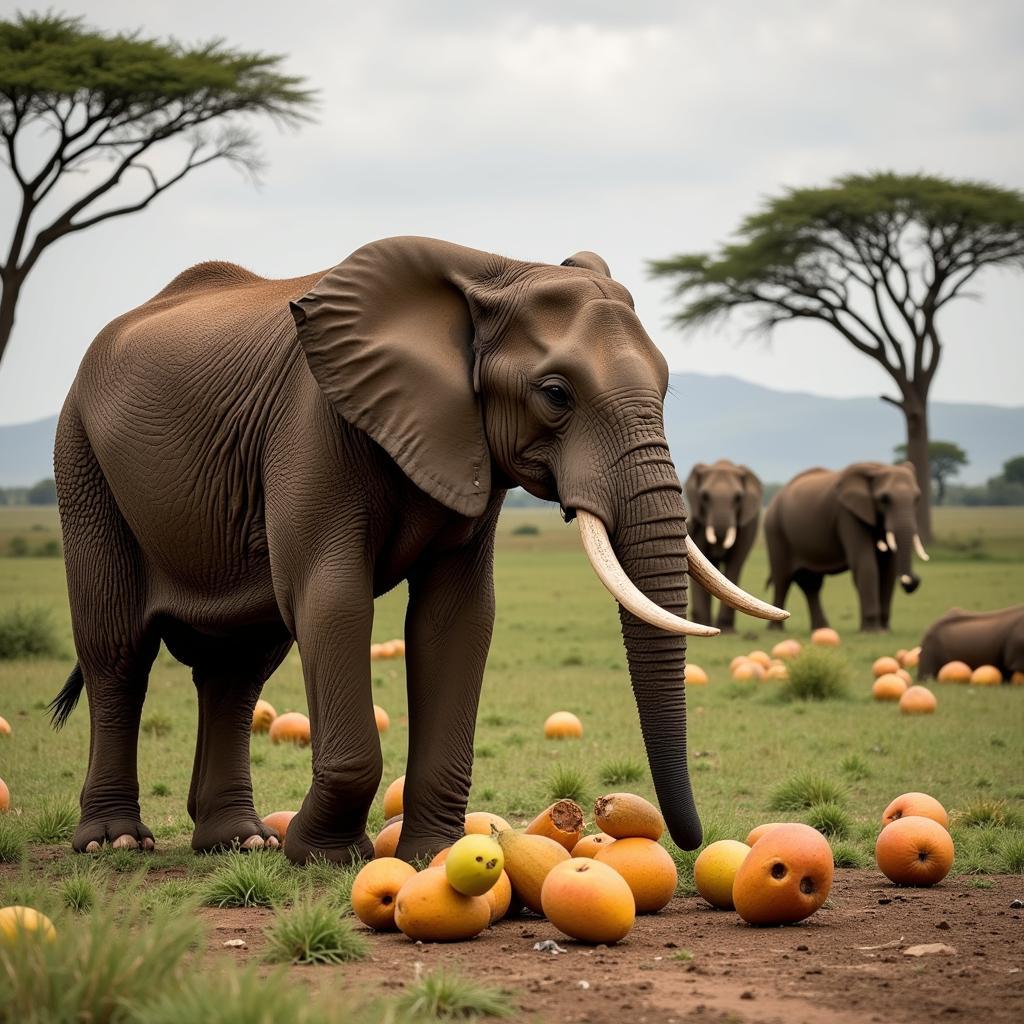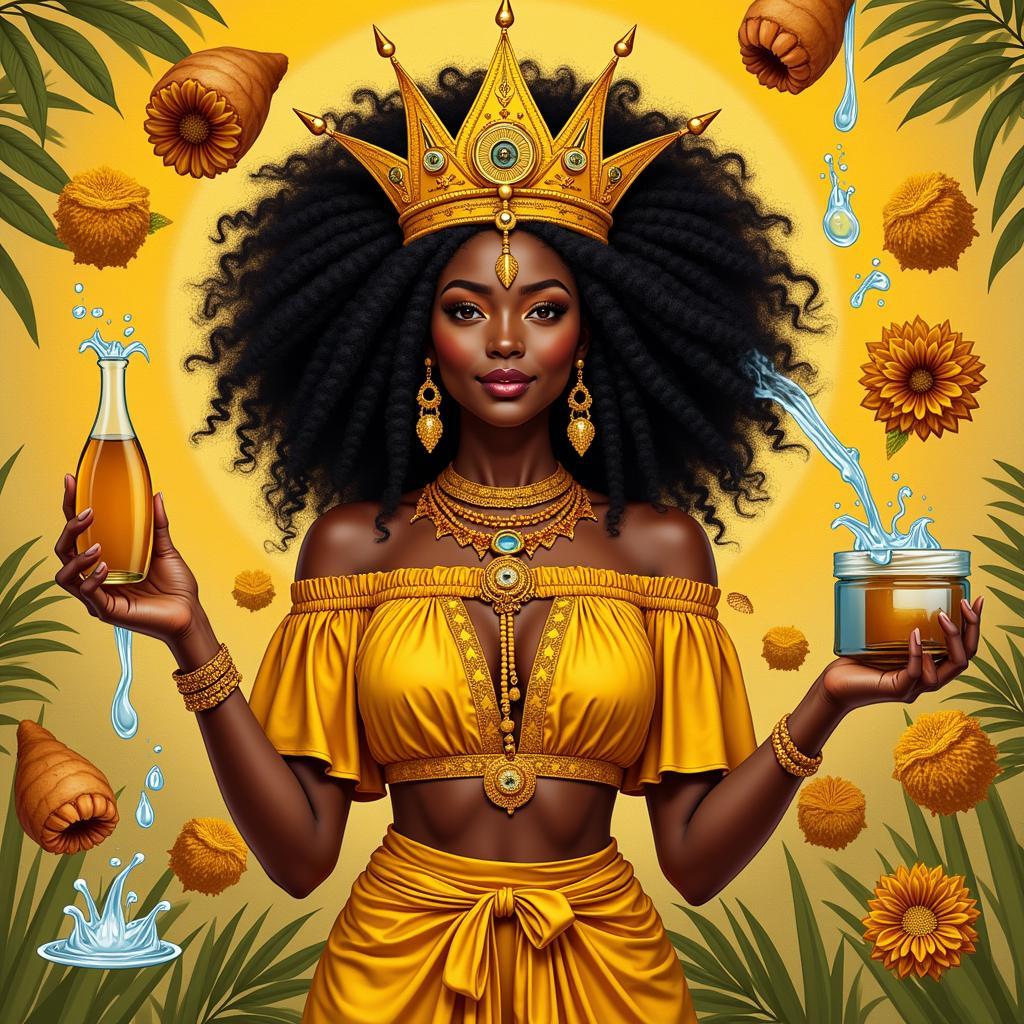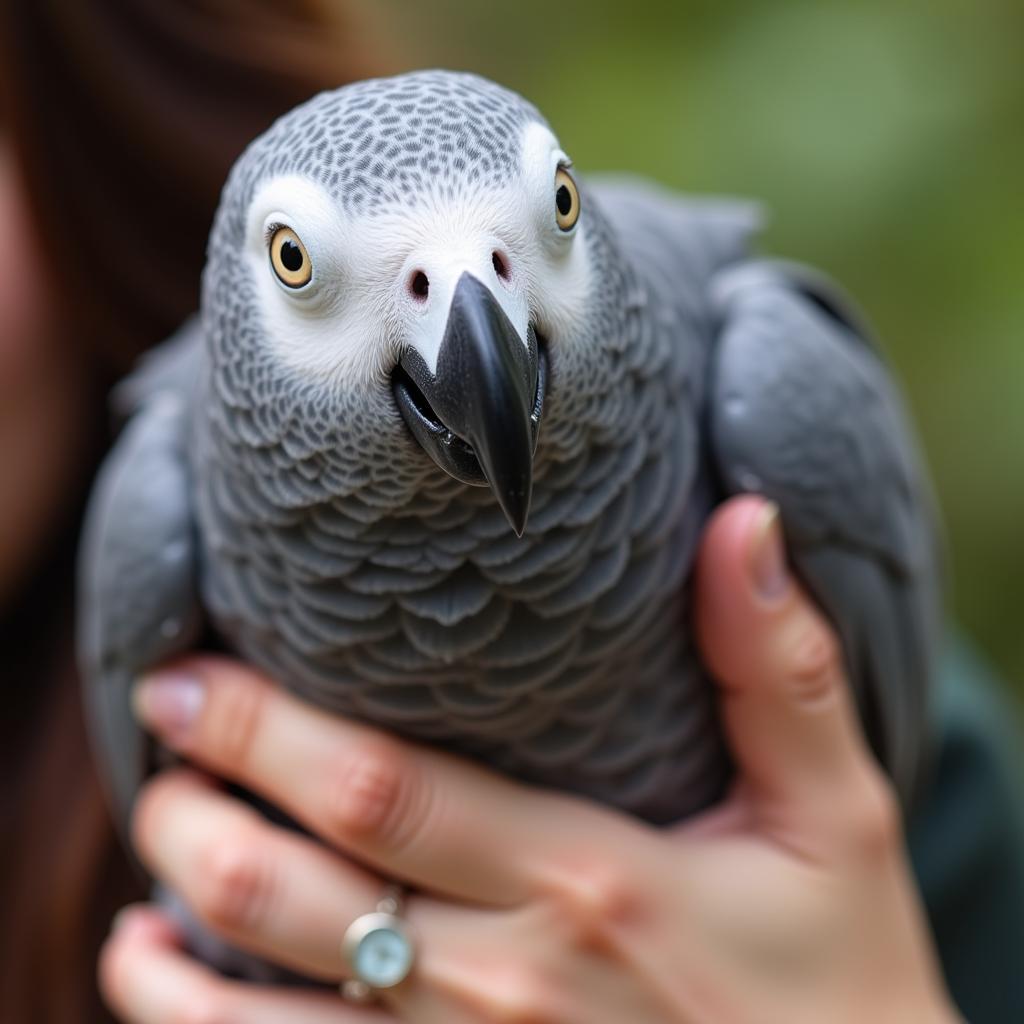African Fruit That Gets Animals Drunk: A Safari Surprise
The African savanna, teeming with wildlife, holds a secret: the “African Fruit That Gets Animals Drunk.” From elephants to monkeys, various animals partake in the fermented bounty of certain fruits, leading to amusing, and sometimes concerning, displays of intoxication. This article delves into the fascinating phenomenon of animals getting drunk on naturally fermenting fruit, exploring the types of fruit, the animals affected, and the implications of this unusual behavior.
The Marula Fruit: The King of Inebriation
The most notorious of the african fruit that gets animals drunk is the marula. This yellow, plum-sized fruit ripens and falls to the ground, where it begins to ferment in the sun’s heat. The process creates alcohol, turning the fallen fruit into a potent brew. Elephants, known for their love of marula, are often observed exhibiting signs of intoxication after consuming large quantities of fermented fruit.
 Elephant Consuming Marula Fruit
Elephant Consuming Marula Fruit
However, the marula isn’t the only culprit. Other fruits, such as the Kigelia africana (sausage tree fruit) and various berries, also contribute to this natural intoxication. The specific fruits involved and the degree of fermentation depend on factors like climate, season, and local flora.
Which Animals Enjoy a Tipsy Treat?
While elephants are the most widely associated with marula-induced inebriation, they are not alone in their enjoyment of fermented fruit. Monkeys, baboons, warthogs, and even birds have been observed exhibiting unusual behavior after consuming overripe, fermented fruit. These animals are drawn to the sweet, fermented scent, and the effects of the alcohol can range from mild disorientation to full-blown stumbling and even falling.
Is it Really Intoxication?
Some scientists debate the extent to which animals actually become “drunk” from fermented fruit. They argue that the amount of alcohol consumed is often too low to cause significant intoxication, and the observed behavior may be due to other factors. However, anecdotal evidence and observations from locals and safari guides strongly suggest that the effects of fermented fruit on animals are real.
The Science Behind the Safari “Hangover”
The fermentation process involves yeast converting the sugar in ripe fruit into alcohol. The longer the fruit remains on the ground, the higher the alcohol content becomes. Animals consuming large quantities of this fermented fruit ingest a considerable dose of alcohol, which can lead to the observed behavioral changes.
What are the Signs of “Drunken” Animals?
The signs of alcohol consumption in animals are similar to those in humans. They may exhibit uncoordinated movements, stumbling, disorientation, and unusual vocalizations. Some animals become more aggressive, while others appear more relaxed and even sleepy.
The Impact of Fermented Fruit on Wildlife
While the spectacle of a “drunk” elephant might seem amusing, the consumption of fermented fruit can have serious implications for wildlife. Intoxicated animals are more vulnerable to predators and accidents. They may also be less able to care for their young. The long-term effects of regular alcohol consumption on animal health are not fully understood and require further research.
Conclusion: The African Fruit That Gets Animals Drunk – A Natural Phenomenon
The phenomenon of african fruit that gets animals drunk offers a fascinating glimpse into the complex interactions between animals and their environment. While the sight of a tipsy elephant might bring a smile, it’s important to remember the potential risks associated with this natural behavior. Continued research is needed to fully understand the impact of fermented fruit on wildlife populations.
FAQ
- What is the main african fruit that gets animals drunk? The marula fruit is the most well-known.
- Which animals are affected by fermented fruit? Elephants, monkeys, baboons, warthogs, and even birds can be affected.
- How does the fruit become alcoholic? Natural yeasts ferment the sugar in the ripe fruit into alcohol.
- Is it harmful to the animals? It can be, as it makes them more vulnerable to predators and accidents.
- Is this behavior common? Yes, it is a naturally occurring phenomenon in areas where these fruits grow.
- What are the signs of intoxication in animals? Uncoordinated movement, disorientation, and unusual behavior.
- What is being done to protect the animals? Ongoing research helps us understand the impact and find solutions.
For further support, contact us at Phone Number: +255768904061, Email: kaka.mag@gmail.com or visit our office at Mbarali DC Mawindi, Kangaga, Tanzania. We have a 24/7 customer service team.



